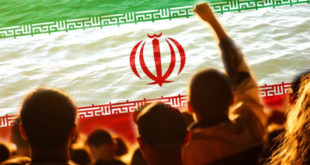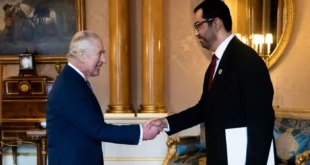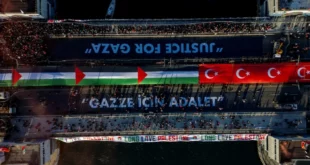Qatar’s PR campaign has done little to fundamentally alter the state’s image problems.
More than two years after Qatar was boycotted by its Arab neighbours for its alleged support for extremism, the tiny Gulf state is spending millions to repair its image in Washington, only to see new perception issues crop up.
According to the Center for Responsive Politics, Qatar has allocated at least $24 million in US PR and lobbying since 2017.
Qatar’s PR and lobbying budgets went to fighting legislation that would single it out for its ties to designated terror groups like Hamas and Hezbollah and also to evade measures assailing the credibility of Doha’s state-financed broadcaster, Al Jazeera. The beleaguered emirate has had mixed success at best in reshaping its image, sometimes convincing lawmakers to water down critical laws and resolutions, but ironically drawing increased scrutiny in the US at its close relationship with America’s arch-foe Iran and for what Jewish advocacy groups say is blatant state-sponsored anti-semitism.
One of the dubious achievements of Qatar’s lobbying campaign was changing the language of a bill that would have censured Doha for its support of Palestinian terror group Hamas. The original bill, which never made it to a vote, accused Qatar of providing significant financial and military support” to Hamas and even hosting “multiple senior Hamas officials, including Hamas leader Khaled Mashal since 2012.” However, the second bill, introduced after Qatar and the Palestinian Authority extensively lobbied Eliot Engel, chair of the House Foreign Affairs Committee, made no mention of Qatar and added in loopholes to sanctions for organisations or individuals lending “humanitarian assistance to Hamas, the Palestinian Islamic Jihad, or any affiliate.”
A “professional acquaintance” of Engel’s told The New York Post that the congressman had been pressed by Qatar to draft a more favourable bill.“Eliot told me directly that he was getting a lot of pressure from the Qataris,” the source told The Post. “The Qataris did a full court press to remove themselves from the bill.”
More recently, Qatari broadcaster Al Jazeera has worked strenuously to shield itself from allegations that it acts on behalf of the Qatari state, which would require it to register as a foreign agent with the Justice Department and disclose
sensitive financial information and ties with American officials. Conservative American lawmakers are pushing for the designation, arguing that Al Jazeera’s editorial line reflects Doha’s foreign agenda and undermines US foreign policy.
“We find it troubling that the content produced by this network often directly undermines American interests with favourable coverage of US State Department-designated Foreign Terrorist Organizations, including Hamas, Hezbollah, Palestinian Islamic Jihad, and Jabhat al-Nusra, al-Qaeda’s branch in Syria,” wrote a coalition of US Republican Congressman to Attorney General Jeff Sessions in March 2018.
Al Jazeera, wary of losing its status as an “independent” media organ, spent upwards of half a million dollars in three months hitting back against the charges. It paid law firm DLA Piper, A US public affairs firm, $540,000 in the
third quarter of 2019 to lobby Congress, up $500,000 from the quarter before. Just two other media companies have registered as foreign agents — Turkey’s Anadolu Agency and MHz News, which runs French and German state-owned
news content.
Problems increased for the Qatari media flagship outlet as it the nature of its content became obvious despite the efforts to give Al-Jazeera English a much more moderate tone than its Arabic language programming. “The fact that there is anti-Semitic material in Al-Jazeera is significant; that it has a daily diet of anti-American material is significant,” said Middle East Broadcasting Networks president Alberto Fernandez.
Qatar’s lobbying campaign is not limited to the halls of congress. The state has also gone to great lengths to influence prominent academic and research institutions that it hopes will create a more favourable media climate. Qatar provides significant funding to the International Crisis Group, a well- regarded NGO that reports on conflicts and crises throughout the world, for instance. Also, the partially state-funded Qatar Foundation outright owns the Doha branch of the influential Brookings Institution. These connections provide Doha’s defenders with a level of credibility and help Qatar spread its message through respectable academic and media outlets. The Qatar Foundation International has even sought to influence American universities’ Middle East curricula with financial contributions, court filings by the Lawfare Project allege. “Qatar has become the single highest [foreign] funder of American universities,” Oren Litwin of the Middle East Forum’s Islamist Money in Politics Project, said at a recent conference.
Still, Qatar’s PR campaign has done little to fundamentally alter the state’s image problems. At issue is not just Doha’s sustained support for designated terror groups and extremist connections but its failure to understand one
fundamental fact of modern PR: The industry can embellish the positives but never fully erase its negatives.
Experts are finding out on their own the realities which Qatar’s public relations campaigns are trying to gloss over.“Doha remains tolerant of hate-speech in mosque sermons, textbooks, and particularly the Arabic-language output of its Al Jazeera satellite broadcasting station,” Simon Henderson, a fellow at the Washington Institute for Near East
Policy, wrote last June during the time of Qatari Sheikh Emir Tamim bin Hamad al-Thani’s last visit to the US.
The US Anti-Defamation League also said it is particularly concerned with anti- Semitic passages it found in official Qatari textbooks that contribute to a more general hostility to Jews. The organisation claims to have found material that
says “Jewish people are treacherous, seek to conquer the world and follow a perverted, invalid religion.
“The books also contained numerous examples of anti-Christian bigotry, as well as incitement against the West,” the ADL added.
Such content does little to win support from the Jewish communities it has spent millions trying to cater to. In 2017, Qatar hired Nick Muzin, former senior adviser to Republican Senator Ted Cruz, to help establish relationships with
leaders of right-wing pro-Israel organisations and Washington-based policymakers, some of whom Doha reportedly made donations to.
Contradictory objectives are also coming back to haunt Qatar’s PR acrobatics. Doha is finding it increasingly difficult to reconcile its extremist connections with its woeing of the US Jewish groups. Qatar’s courtship of Jewish organisations included donating $100,000 to the Zionist Organization of America (ZOA), $100,000 to Our Soldiers Speak and
$50,000 for Blue Diamond Horizons, Inc, according to media reports. ZOA suffered many Jewish media attacks as a result of its connection to Qatar. Israeli Prime Minister Binyamin Netanyahu publicly urged Jewish figures not to
deal with Doha.
Qatar, which is being forced to reckon with the limits of its lobbying efforts., has to live with the fact that good PR is no substitute for sound policy. “Qatar is not likely to withdraw their backing of Hamas,” Varsha Koduvayur, a senior
research analyst at the Foundation for Defence of Democracies told the Jewish News Syndicate. “They’ve committed too much political capital to this cause, not to mention millions of dollars.”
 Eurasia Press & News
Eurasia Press & News


